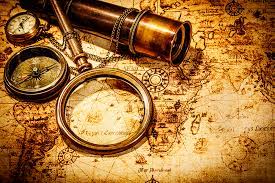
15 Historians you Should Know
Historians:
- John Kennan: American diplomat known for his role in shaping US foreign policy during the Cold War.
- David Reisman: Sociologist and author known for his work on post-WWII American society and culture.
- John Kenneth Galbraith: Economist who analyzed the role of government in shaping economic policy and critiqued the influence of corporations.
- Rachel Carson: Environmentalist who sparked the modern environmental movements and raised awareness about dangers of pesticide.
- Betty Friedan: Feminist writer and activist who co-founded the National Organization for Women (NOW) and wrote a landmark book “The Feminine Mystique” in second-wave feminism.
Political Figures:
1. Harry S. Truman: 33rd president of the US who implemented the Truman Doctrine to stop the spread of communism and oversaw post-WWII reconstruction efforts.
2. Dwight D. Eisenhower: 34th president of the US known for his leadership during WWII as Supreme Commander of the Allied forces in Europe.
3. Joseph McCarthy: US Senator who led the anti-communist crusade during the Red Scare of the 1950s.
4. Lyndon Johnson: 36th president of the US who championed the Civil RIghts Act and launched the “War on Poverty” and “Great Society” Programs.
5. Richard Nixon: 37th President of the US who implemented a policy of detente with the Soviet Union and opened diplomatic relations with China.
6. Jimmy Carter: 39th President of the US who prioritized human rights and brokered the Camp David Accords between Israel and Egypt.
7. Ronald Reagon: 40th President of the US known for his conservative policies, economic reforms, and confrontation with the Soviet Union.
8. George HW Bush: 41th President of the US who led the country during Persian Gulf War.
9. Bill Clinton: 42nd President of the US known for his economic policies, welfare reform, and involvement in the Middle East process.
10. John Foster Dulles: Secretary who believed in anti-communism and known for his brinkmanship, which stated that the US should be willing to go to the brink of the war in order to achieve its foreign policy goals.

Responses